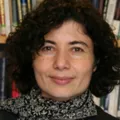An excerpt from "Islamic Responses to Europe at the Dawn of Colonialism":
SAVING MUSLIMS FROM ISLAM:
RENAN AND AL-AFGHANI
The French philologist Ernest Renan wrote his doctoral dissertation on the twelfth-century philosopher Ibn Rushd (d. 1198), Averroes as he was known in the Latin West. But Renan's work on Islam spanned a broad spectrum; he wrote on the foundation of the Islamic faith, its prophet, doctrines, theology, etc. He also wrote on Judaism, Christianity, philosophy, language, science, literature, and more. Whether Renan's views of Islam were defined by a predisposition to an ideological and systematic framework or not is difficult to say, but they did nevertheless grow into an ideological worldview. Despite the numerous flaws in his ideas and the subsequent scholarship that has since discredited him, Renan's ideas have survived to the present day.
Renan's contemporaries describe him as someone who is passionate and "nervously obsessed" by his own ideas: "He has impressions, this says it all. Generalizations for him are nothing but the effect, the echo of things in him. He has no [analytical] system, but insights, and sensations." His writings on Islam certainly fit such a description. In his mind, Islam is the last religious creation of humanity and its least original. Relative to other religious traditions, he considers Islam to have brought forth the heaviest fetter humanity ever had to endure. For him, there was no such thing as an Arabic science or Arabic philosophy. People thought there was one "until we recognized the Greek origin of Arabic science and philosophy. The latter were but a petty translation of Greek science and philosophy." The great intellectual movement that the world witnessed under Islamic rule, he held, owed nothing to Islam. Muslims who happened to be part of it were "internally rebelling against their religion," for, in reality, "Islam always persecuted science and philosophy." Despite admiring the original ideas of al-Ghazali (d. 1111), who renounced philosophical rationalism in favor of a life of mysticism, Renan blamed him for humiliating science and philosophy in his book The Incoherence of the Philosophers. Thus, for Renan, the twelfth century saw the end of philosophy in Islam; that is when Ibn Rushd, whom he considered to have been the last Muslim philosopher, died in 1198.
Renan's ideas are fraught with internal contradictions. Assuming as he does that Islam is antithetical to science and philosophy, it was either that no science and philosophy could have existed under Islam and all the intellectual output was mere translation of Greek texts, or that Islam had its scientists and philosophers, but they were not true Muslims. Renan's inconsistency is more bewildering when in the same article he professes that Islam kills science and philosophy and admits that it was within the heart of Islam that complete rationalism was developed. He tells of an account by a Spanish theologian who witnessed two sessions conducted by Muslim theologians (mutakallimun) in Baghdad during the Abbasid era, and decided never to attend another:
The first session, which I attended, there were not only Muslims of all sorts, orthodox and heterodox, but also religious deviants, Zoroastrian (guèbres), materialists, atheists, Jews, Christians; in short, there were unbelievers/skeptics (incrédules) of all kinds. Each sect had its own leader, entrusted with the task of defending the opinions they professed ... one of these unbelievers would address the gathering: "we are gathered here to reason, he would say. You all know the rules. You Muslims shall not invoke arguments from your Book [i.e., the Qur'an] or based on the authority of your prophet, because we believe in neither. Each one should limit his arguments to reason." Everyone applauded. — You understand, continued the Spanish theologian, after listening to such things, I didn't return to these assemblies. They proposed that I should visit another, but it was just as scandalous.
One would have thought that the fact that orthodox and heterodox Muslims took part in such gatherings should have given Renan a pause, but coherent analysis of complex issues does not seem to have been his forte. H. Taine held that Renan is simply incapable of formulating a precise formula. Al-Ghazali (d. 1111), whose original mind Renan admired, would have judged Renan in much harsher terms. He was of the view that ignorance and "imbecility are nearer to salvation than a defective intelligence" or arrogance.
One gets the sense that for Renan, Islam is itself a malady. Once it takes hold of the mind, it is certain to lead it into infinite fanaticism. By the time of his religious initiation, around the age of ten or twelve, the Muslim child, Renan held:
... turns suddenly fanatic, full of an inane pride of possessing that which he thinks to be absolute truth ... This mad pride is the radical vice of the Muslim. ... convinced that God gives fortune and power to those who obey him, irrespective of education or personal merit, the Muslim has the most profound contempt for education, science, and everything that makes up the European mind. This strain inculcated by the Islamic faith is so strong that all the differences of race and nationality disappear by the act of converting to Islam. The Berber, Sudanese, Circassian, Malay, Egyptian, Nubian, once they become Muslims, cease being Berber, Sudanese, Egyptian etc. ... they become Muslims. Only Persia is an exception; it was able to guard its distinct mind.
Thus, emancipating the Muslim from his religion, Renan held, is the best service Europe could offer him.
Renan's views about Islam and science beyond the twelfth century have long been discredited by historians of science. To give one example, George Saliba's work on astronomy has established that Copernicus' "astronomical revolution" owed a great deal to advances in the field by Muslim astronomers in the thirteenth and fourteenth centuries (among others, Damascene physician Ibn al-Nafis [d. 1288] and Damascene astronomer Ibn al-Shatir [d. 1375]). But in view of Renan's claims and for the purposes of this chapter, it is worth rewinding the clock to less than a century earlier, that is, prior to the onset of colonialism in the Arab-Islamic world, and examine what a Yemini scholar, Muhammad bin Ali al-Shawkani (1759–1839), a contemporary of al-Jabarti, thought of a proper education that students desiring to achieve high stages of learning ought to pursue.
Al-Shawkani's purpose of writing his book, Talab al-'Ilm wa-Tabagat al-Muta'allimin (The Pursuit of Knowledge and the Categories of the Educated), is to compile a curriculum for the interested student that would meet his intellectual ambition. The pursuit of knowledge, al-Shawkani writes, is one of the highest and most honorable forms of worship. The student has a duty to avoid dogmatism of all kinds and pursue a fair and objective approach to his study of the Shari'a; it is like a trust in his hand, not to be betrayed. Taking side, in a dogmatic manner, with any Muslim scholar amounts to betraying the Shari'a:
...you would turn him [i.e., the Muslim scholar] into a lawgiver (shari') instead of a jurist (mutasharri'); into the source of religious authority (mukallif) instead of someone authorized to carry out the religious precepts (mukallaf); [in short, you would turn him] into somebody to be worshipped instead of a worshipper.
Lahoud, Nelly. “Islamic Responses to Europe at the Dawn of Colonialism.” October 2008




